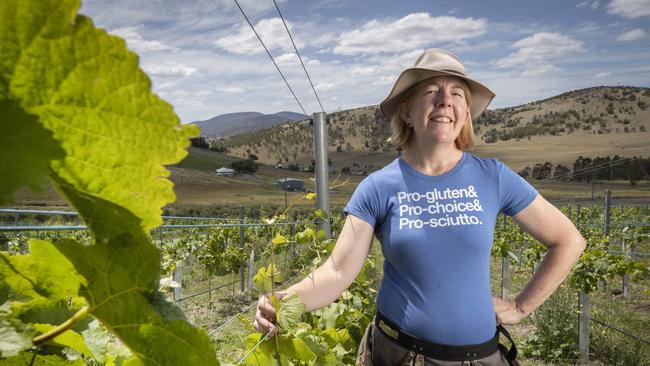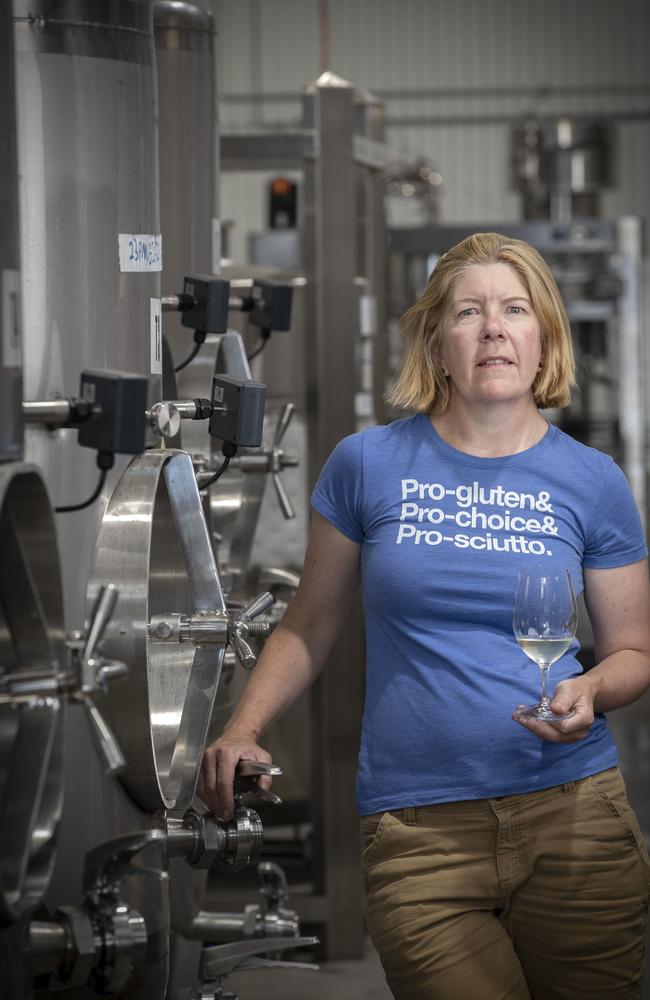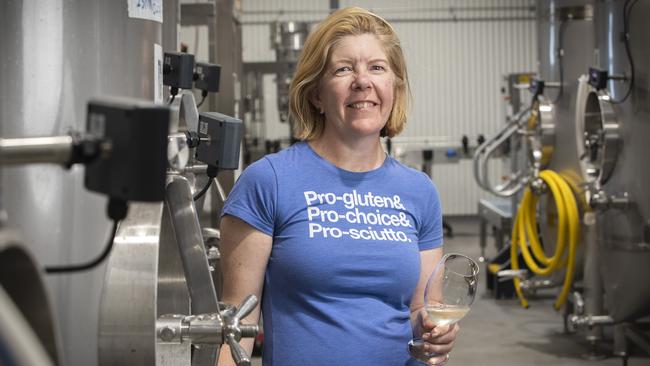Tasmania’s wine industry is tracking to grow by $2 billion annually by 2040: Wine Tasmania
Tasmania’s cellar door is set to swing over the next two decades, with new research revealing the state’s wine industry is expected to explode into the billions.

News
Don't miss out on the headlines from News. Followed categories will be added to My News.
Tasmania’s cellar door is set to swing over the next two decades, with new research revealing the state’s wine industry will grow to $2 billion annually by 2040.
A study commissioned by Wine Tasmania shows the industry currently generates approximately $420 million in wine each year, and supports 3600 full-time equivalent jobs.
Wine Tasmania CEO, Sheralee Davies, said Tasmania was the only state whose grape-growing workforce grew over the past decade, up by 74 per cent, compared with a 29 per cent reduction nationally.
Female participation was also uniquely positive in Tasmania, up by 115 per cent over the last year.
“The Tasmanian wine sector is founded in agriculture, but its value grows exponentially through winemaking and wine tourism,” Ms Davies said.

“Nearly every community in Tasmania is directly or indirectly linked to the wine sector, including through employment, investment and tourism in our regional areas.
“A quarter of visitors to Tasmania call into our regional cellar doors, with these visitors staying longer and spending more than others.”
Ms Davies said that from humble beginnings in the 1950s, Tasmania’s wine industry had grown to what it was today thanks to the tireless work of generations of growers and winemakers.
This was despite official advice that Tasmania was too cold and unpredictable to ever be a serious wine-producing region.
“Tasmania is now leading the country, through its global profile, the value of wine
grapes and wine, visitation to its cellar doors and market-led growth as well as
regional employment and investment,” Ms Davies said.
“This reputation, coupled with a changing climate and wine preferences, will see even further growth over the coming years.
“While growth reflects confidence in the Tasmanian wine sector, it also comes with
quite a lot of risk.
“There is an opportunity for future growth to be carefully considered and managed to ensure Tasmania builds on its strong platform of today.”
Samantha Connew founded Stargazer Wines in 2012, and recently planted another two hectares of vines at her Tea Tree vineyard.

Ms Connew said plans for a cellar door were also afoot to take advantage of the increasing demand for the state’s wine from tourists.
“Tasmania is in a sweet spot in comparison to the mainland and internationally as well,” Ms Connew said.
“Just speaking from my own perspective, the growth of Stargazer has been pretty crazy … and a lot of that is based on the reputation of Tasmania and the cooler-climate styles we produce such as pinot, chardonnay, sparkling, and riesling.
“It’s what consumers are looking for right now.
“Largely, export is untapped in Tasmania. We know that demand is exceeding supply, but we haven’t even really started to scratch the surface of getting Tasmanian wines out to the world.”
Ms Connew said it was essential that Tasmania continued to maintain its own unique wine identity, and remain a key part of the state’s overall brand story.
“We’re a small place with a small population, but we’ve got an incredible reputation and it’s important that we are all growing together and lifting each other up,” Ms Connew said.
“Tourism is going gangbusters, and wine tourism is a very important part of the future growth we are having a look at.”



